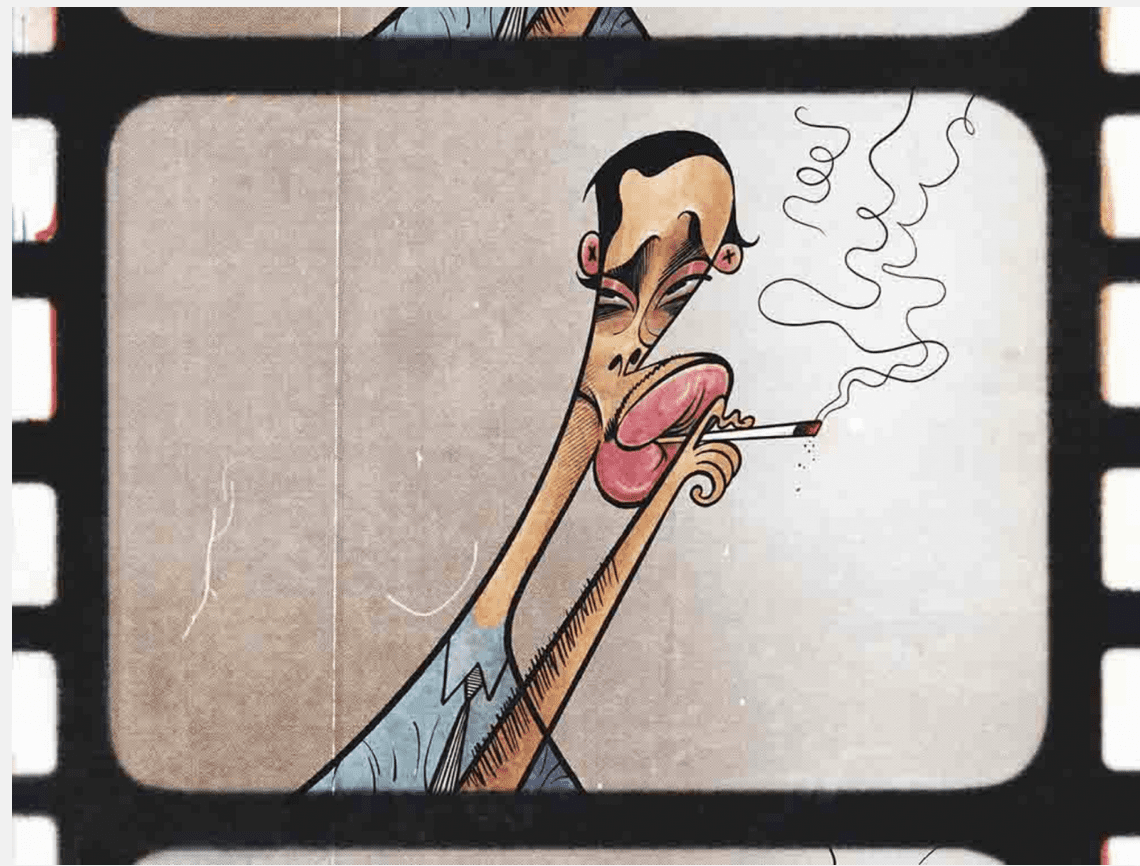Search Posts
Recent Posts
- Rhode Island Weather for April 1, 2025 – Jack Donnelly April 1, 2025
- Drowning in corruption in Bonnet Shores: Dr. Melissa Jenkins Mangili April 1, 2025
- ART! Pawtucket City Gallery Reception, Pawtucket April 1, 2025
- RI millennial rental trends: how investors can benefit from shifts in the market – Emilio DiSpirito April 1, 2025
- Brown Univ: Med school DEI dean moves to VP of Campus Life. Admits 2,418 to class ’29. April 1, 2025
Categories
Subscribe!
Thanks for subscribing! Please check your email for further instructions.

Classic movies to the rescue! – David Brussat
Photo: “John Waters puffs out a mixed message.” Wrong decade, but no matter. (Joaquín Aldeguer)
by David Brussat, Architecture Here and There – a repose on Turner Classic Movies
It seems that Turner Classic Movies is at risk of being canceled. A trio of superheroes (mega movie stars and producers) has ridden to the rescue, for now, of the channel for people who like old and relatively old films, but the battles between streaming giants for audience share keeps TCM in a perpetual shadow.
I don’t know or want to know anything about the competition for audience share, which seems to me to involve too much reverence for people with minimal taste, whose need for extremely loud and tedious content seems to override the needs of those with a little more taste, at least in the minds of those who set the parameters of this battle of post-Hollywood titans.
But I do know that life will be poorer for me if I cannot have my usual fix of old movies. My patience generally dictates a cutoff at 1970. The decade beginning with that year produced an absolute minimal number of watchable films, or so it seems to me. But never mind. Nobody’s holding a gun to my head as I decide what to record on my wuddayacallit.
The best movies were produced between the early 1930s and the late 1950s. Mostly in black and white. Sometimes it seemed that every film opened with a shot of the Manhattan skyline. You could learn a lot about how people got into and out of cars during those years. That was before central consoles prevented people in the front seats from sliding over to the side of the car at the curb. Men did not rush to open the passenger door for women. Women opened their door and got out, followed by the man, who slid over and climbed out after her. The permutations of this seated dance depended upon whether the man was hot for the woman, or vice versa. Getting out first was a sort of defense mechanism to thwart the early manifestations of romance, assuming that the front seat had not already been the scene of hanky panky. Getting into a car was a different story, and here a man did always open the passenger-side door for a woman, although, depending how much in a hurry they were, the man might squeeze in first and slide under the wheel, perhaps copping a feel as the woman got in and closed the door for herself. After a while, seeing endless romances play out in the front seat (or the back of a taxi) and out on the curb, you begin to notice these things.
The lighting of cigarettes and their consumption was also an art form practiced when a man and a woman, whether in a car or indoors, had something in mind. How to deploy smoke during exhale was a subgenre of this art form. Some stars in Hollywood were better at it than others. It was less a matter of blowing smoke rings than of directing the smoke in lazy swirls into the vicinity of the other person in the scene. Equally vital was the subgenre of lighting a cigarette for oneself or another, especially for a female. So far as I know, women never had to light their own cigarettes unless they were by themselves, waiting for a man to show up and do it for them, with panache. A solitary cigarette? What’s the point? Nor was lighting a cigarette ever anything but a binary activity.
The sex play in these movies, in spite of the codes developed to thwart such menacing diversions, may or may not have been noticed or understood by those charged with enforcing these codes. But they were probably understood by audiences. The social graces displayed by the actors and actresses in these films swim together in my mind. I could never really catalogue them with any sort of rigor. No doubt others have undertaken to research and understand them for me. I am sure that, taken together, these nuances enhance the viewing pleasure for me every night without having to understand them, just like the doohickeys that line the whatchamahoogers on a length of classical architecture.
Ahh! It feels so good! Don’t stop!
Addendum: An essay about smoking in the movies, “Waiting to exhale,” by Michael Atkinson in the Feb. 7, 2022, Village Voice is definitely worth a read, but his distress at film smokers wasting his time is overwrought and ridiculous. Read it. The essay and the images by Joaquín Aldeguer are fun.
___
To read other articles by David Brussat: https://rinewstoday.com/david-brussat-contributing-writer/

My freelance writing and editing on architecture and others addresses issues of design and culture locally and globally. I am a member of the board of the New England chapter of the Institute of Classical Architecture & Art, which bestowed an Arthur Ross Award on me in 2002. I work from Providence, R.I., where I live with my wife Victoria, my son Billy and our cat, Gato. If you would like to employ my writing and editing to improve your work, please email me at my consultancy, [email protected], or call (401) 351-0451.
